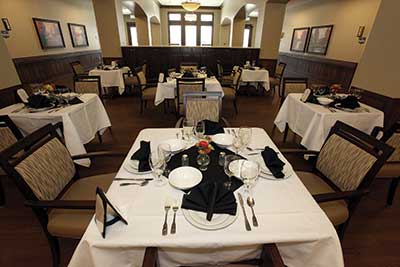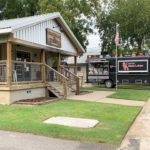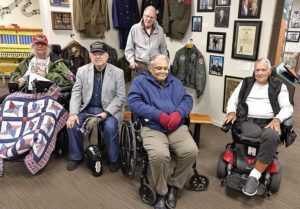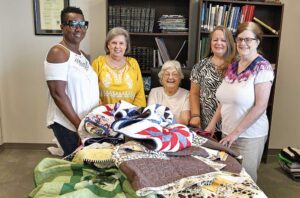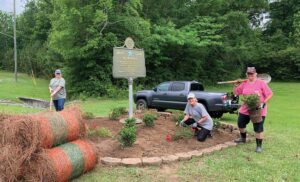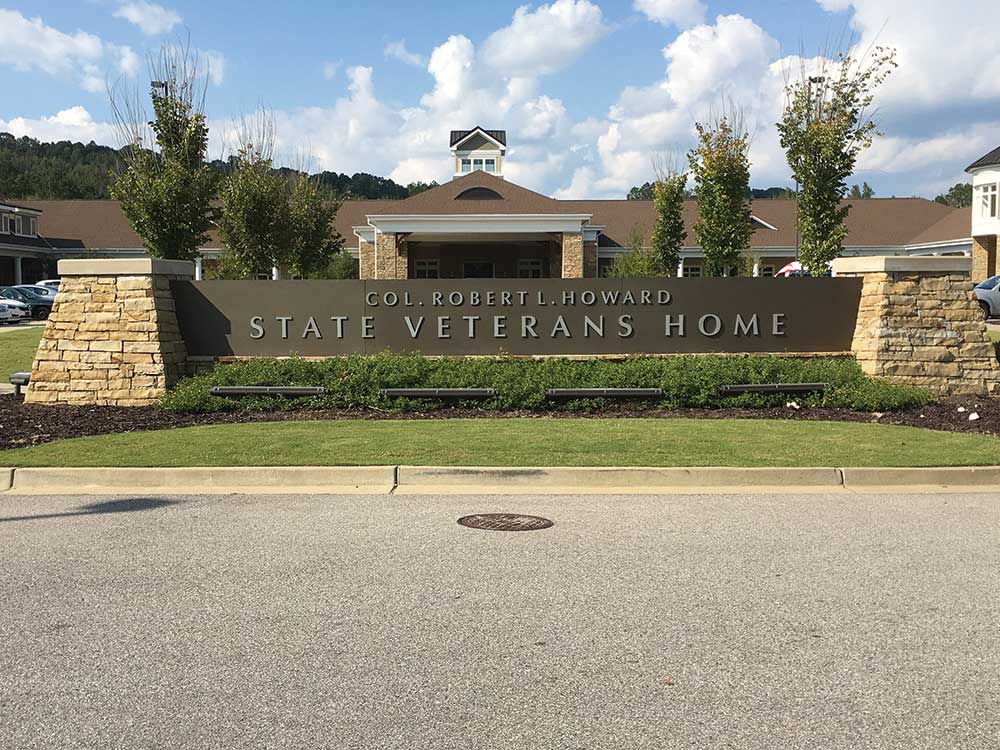
Col. Robert L. Howard State Veterans Home
still a standout almost a decade later
Story by Carol Pappas
Staff photos
When the Col. Robert L. Howard State Veterans Home opened in 2012, officials knew it would usher in a new era for the region. The state and nation, really.
After all, this cutting-edge concept in state veterans homes was the pioneer, leading others to fall in line and follow suit.
It wasn’t just the breathtaking design – more like an exclusive mountain lodge and resort town than a nursing, assisted living and memory care facility. It was the realization that finally, veterans had a home worthy of their service to the country.
In the years that have followed, others saw it as a model, an idea that has grown and thrived around the country. Here at home in Alabama, the state is getting ready to open its fifth state veterans home in Enterprise. And it’s no surprise that the model in Pell City became the inspiration.
“If you ask veterans where they would rather be, their answer would be, ‘I’d rather be at home,’” said Rear Adm. Clyde Marsh, commissioner of the Alabama Veterans Administration just before it opened. “We tried to create a home they would like to go to and enjoy. We think the veterans will be happy here.”
He was right. Inside its massive corridors is like strolling through a downtown main street. Glass storefronts reveal what’s housed inside – a beauty shop, barber shop, pharmacy, library, chapel and a café.
The town center is an immense room anchored by a floor-to-cathedral-ceiling fireplace, sitting areas and nooks, a gathering place for residents and visitors alike. Courtyards and covered patios with rocking chairs add to the welcoming atmosphere.
Residences aren’t hospital-style rooms, they are neighborhoods with private rooms, a central kitchen, dining room and living room – just like the admiral said nine years ago, a home.
The $50-million project did not miss its target, providing homes for 891 veterans to date, giving them access from assisted living to Alzheimer’s/dementia and skilled nursing services.
Hiliary Hardwick, director of the veterans home, has served there since the opening. She has played a role in every one of those 891 admissions, she said.
In return, the rewards have been many over the years, she said. “I get to know them and their families and take care of them. I get to know their stories.”
She knows the personal remembrances of D-Day, women who served in World War II, the liberation of Paris, landing on Omaha Beach or the fighting in Korea and Vietnam. They are eyewitnesses to history.
As World War II veterans have aged and passed away over the past nine years, the veterans home staff are seeing rapid changes. “We are having more and more Vietnam veterans,” Hardwick said. Veterans of the Gulf War are beginning to come there to live as well.
“They’re a lot younger – in their 60s and 70s – instead of late 80s and 90s,” and the staff are adapting to their needs. “It’s a different mindset on how to take care of them,” she explained. “They’re more tech savvy. They know about Wi-Fi,” and the changing needs are being met.
They’re more active, she noted, and consequently, activities for them are changing. As an example, she said there are a lot of golfers, so they partnered with the Alabama Golf Superintendent’s Association to design and build a putting green on the grounds. The community joined the effort as well with donations from Disabled American Veterans, American Legion and Pell City Rotary Club.
Community involvement like the putting green project is not unusual at the veterans home over the years, although activity has been significantly limited in the past year due to pandemic concerns.
But in years past, the community has ‘adopted’ the veterans home and its residents, making sure needs are fulfilled – from special events to visits to decorating for Christmas to entertaining or just being a friend.
Just like Rear Adm. Marsh said, it’s their home, and it should befit their service.
Hardwick agreed, talking about the sacrifices they made and the history they’ve experienced and are willing to share. “They’ve lived history, it’s not just something you read in a book.”














